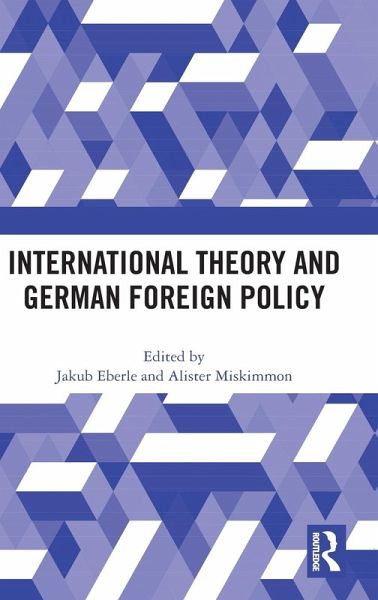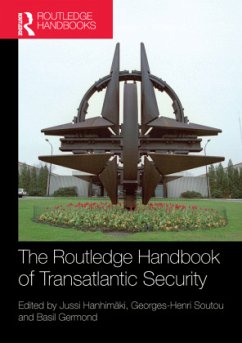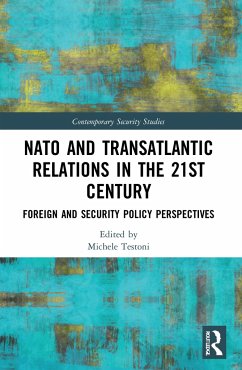
International Theory and German Foreign Policy
Versandkostenfrei!
Versandfertig in 6-10 Tagen
156,99 €
inkl. MwSt.
Weitere Ausgaben:

PAYBACK Punkte
78 °P sammeln!
The central aim of this book is to foster connections between scholarly discussions of German foreign policy and broader theoretical debates in International Relations and beyond. While there has been a lively discussion about 'new German foreign policy', this book argues that it has not engaged substantially with international and foreign policy theory, especially with respect to its more recent developments.Reviewing the recent literature on German foreign policy, this book posits that the most discussed works are still largely provided by the 'Altmeister' (Maull, Szabo, Bulmer and Paterson)...
The central aim of this book is to foster connections between scholarly discussions of German foreign policy and broader theoretical debates in International Relations and beyond. While there has been a lively discussion about 'new German foreign policy', this book argues that it has not engaged substantially with international and foreign policy theory, especially with respect to its more recent developments.
Reviewing the recent literature on German foreign policy, this book posits that the most discussed works are still largely provided by the 'Altmeister' (Maull, Szabo, Bulmer and Paterson) who were already dominating the field a quarter of a century ago. While there is a general decline in the academic study of German foreign policy, the chapters in this edited volume show that a range of novel, theoretically sophisticated but often disconnected scholarship has appeared on the margins. This book contributes to this emerging work by providing conceptual interrogations, which question the existing research and provide theoretically-grounded alternatives; initiating critical discussions and evaluations of the nature of Germany's actorness and the environment in which it operates and proposing applications of less familiar perspectives on German foreign policy.
The chapters in this book were originally published as a special issue of German Politics.
Reviewing the recent literature on German foreign policy, this book posits that the most discussed works are still largely provided by the 'Altmeister' (Maull, Szabo, Bulmer and Paterson) who were already dominating the field a quarter of a century ago. While there is a general decline in the academic study of German foreign policy, the chapters in this edited volume show that a range of novel, theoretically sophisticated but often disconnected scholarship has appeared on the margins. This book contributes to this emerging work by providing conceptual interrogations, which question the existing research and provide theoretically-grounded alternatives; initiating critical discussions and evaluations of the nature of Germany's actorness and the environment in which it operates and proposing applications of less familiar perspectives on German foreign policy.
The chapters in this book were originally published as a special issue of German Politics.













